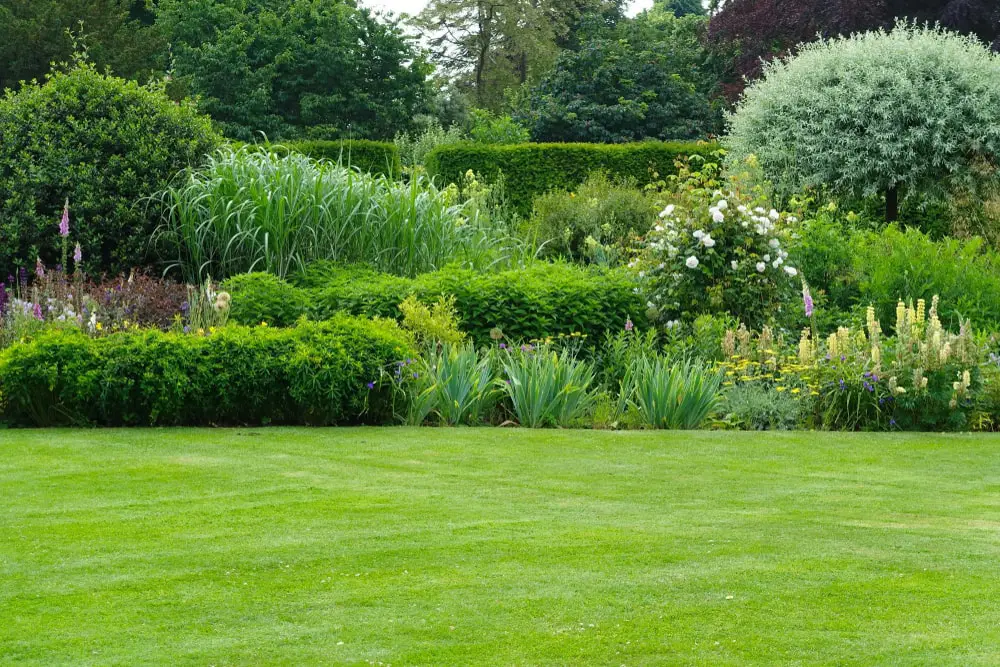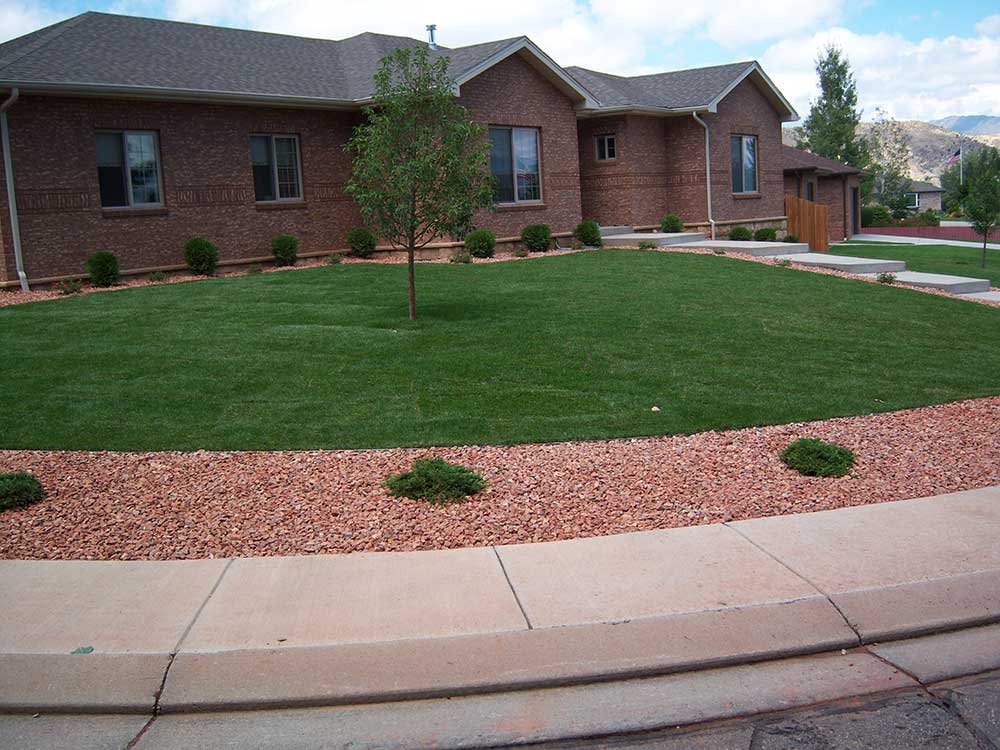How Hilton Head Landscapes can Save You Time, Stress, and Money.
Table of ContentsHow Hilton Head Landscapes can Save You Time, Stress, and Money.The Ultimate Guide To Hilton Head LandscapesThe Basic Principles Of Hilton Head Landscapes Hilton Head Landscapes - An OverviewThe smart Trick of Hilton Head Landscapes That Nobody is Talking AboutWhat Does Hilton Head Landscapes Mean?The 15-Second Trick For Hilton Head LandscapesWhat Does Hilton Head Landscapes Mean?
Kind compatibility is also a major element of unity in designone or more strikingly different types are excellent for contrast and emphasis, yet normally all other types must have some similarities for a linked look. Appearance describes exactly how coarse or fine the surface of the plant or hardscape product feels and/or looks.
Examples of plants with coarse appearance include philodendrons, agaves, bromeliads, hollies, palms, and hydrangeas. Hardscape with crude structure includes rough-cut rock, rough-finished brick, and incomplete wood with knots and a raised grain. Matured or old building product that preserves a weather-beaten surface is frequently crude in structure. Characteristics that develop fine appearance consist of small foliage; slim, strappy fallen leaves (lawns) or tall, slim stems; little, dense branches and small branches; long stems (creeping plants); and little, fragile blossoms.
Getting The Hilton Head Landscapes To Work
Many plants are average appearance, in that they can not be defined as having either coarse or fine texture. Medium-textured plants act as a background to link and link the coarse- and fine-textured plants.

To make a space feel smaller, put the rugged structures along the outer perimeter and the fine textures closest to the customer. The information of the crude appearance makes the plants show up closer and makes the room really feel smaller sized. The viewed structure of plants can also transform with the range from the plant.
Not known Facts About Hilton Head Landscapes
Bold shades raise the contrast and make the texture appear coarser, while muted colors can flatten texture. Hardscape with a rugged texturesuch as extremely harsh rocks and vibrant, large timberstends to make all plant product appear much more moderate distinctive. Designers frequently develop a texture research (Number 8) on paper to assist choose the setup of plant materials.
Shade in plant product and hardscape adds passion and range to the landscape. Color is the most obvious aspect in the landscape and is usually the emphasis of a lot of homeowners; however, it is additionally the most momentary aspect, typically lasting only a couple of weeks a year for individual plants.
Getting The Hilton Head Landscapes To Work
An easy summary of the shade wheel consists of the 3 primaries of red, blue, and yellow; the 3 additional shades (a mix of two primaries) of eco-friendly, orange, and violet; and 6 tertiary shades (a mix of one surrounding key and second shade), such as red-orange. Shade theory discusses the partnership of shades per other and just how they need to be utilized in a make-up.

Comparable (often called unified) color pattern are any type of three to 5 shades that are surrounding on the shade wheel, such as red, red-orange, orange, yellow-orange, and yellow, or blue, blue-violet, and violet (Landscaping bluffton sc). The shades belong per various other due to the fact that they typically include two primary colors mixed to develop an additional and 2 tertiary shades, which indicates they share typical residential or commercial properties
They have a tendency to have high comparison between them. The most common sets are violet and yellow, red and eco-friendly, and blue and orange. Complementary colors are frequently found naturally in blossoms; an usual pair is yellow and violet. Color is found in the flowers, foliage, bark, and fruit of plants.
Our Hilton Head Landscapes Statements
Eco-friendly foliage in all its different shades is the dominant shade by quantity, yet other colors record interest quicker as a result of their high contrast to the shade environment-friendly. Shade is likewise found in structures, rocks, pavers, wood, and furniture. Many shades in natural materials, such as stone and wood, are generally low-key and have a tendency to be variants of brown, tan, and pale yellow.
Color is an important component for producing passion and selection in the landscape. Shades have homes that can influence feelings, spatial assumption, light top quality, balance, and emphasis. One building of shade is straight from the source defined relative to temperaturecolors seem awesome or warm and can impact emotions or feelings. Great shades often tend to be relaxing and need to be used in locations for leisure and tranquility.
Hilton Head Landscapes for Dummies
Great colors tend to recede and are perceived as being farther away, making a space really feel bigger. Shade can additionally be utilized to record interest and direct sights.
Intense yellow, which has the highest intensity, likewise has a high contrast with all other colors (commonly explained as a "pop" of color) and should be utilized sparingly. A tiny quantity of intense shade has as much visual weight as a large quantity of an extra restrained or weaker shade.
Analogous (sometimes called unified) shade schemes are any 3 to five colors that are nearby on the shade wheel, such as red, red-orange, orange, yellow-orange, and yellow, or blue, blue-violet, and violet. The shades relate per other since they generally include two main shades blended to develop a second and 2 tertiary shades, which implies they share common homes.
The Best Guide To Hilton Head Landscapes
They have a tendency to have high comparison in between them. One of the most common sets are violet and yellow, red and environment-friendly, and blue and orange. Complementary colors are commonly found naturally in blossoms; a typical set is yellow and violet. Color is discovered in the flowers, foliage, bark, and fruit of plants.
Green foliage in all its different tones is the dominant shade by quantity, yet various other colors record interest quicker as a result of their high contrast to the color environment-friendly - landscape design hilton head - https://www.cheaperseeker.com/u/h1tnhdlndscps. Shade is additionally found in structures, rocks, pavers, wood, and furniture. Most colors in all-natural materials, such as rock and wood, are commonly soft and often tend to be variations of brown, tan, and light yellow
Fascination About Hilton Head Landscapes
Colors have buildings that can affect emotions, spatial perception, light quality, balance, and emphasis. Cool colors have a tendency to be relaxing and need to be made use of in locations for relaxation and serenity.
Amazing colors often tend to decline and are viewed as being further away, making a room really feel larger. Color can additionally be utilized to catch attention and straight sights - https://scriaoll-troos-gaerk.yolasite.com.
As an example, bright yellow, which has the highest possible strength, also has a high comparison with all various other shades (typically referred to as a "pop" of color) and must be conserved. A small quantity of intense color has as much aesthetic weight as a big amount of a much more controlled or weak color.